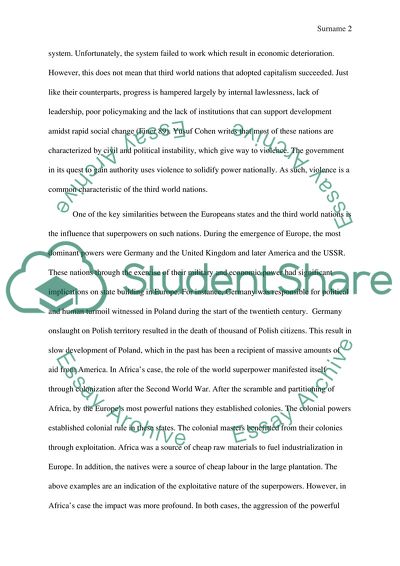Cite this document
(“State-building In Developing Countries Essay Example | Topics and Well Written Essays - 2000 words”, n.d.)
Retrieved from https://studentshare.org/social-science/1668480-state-building-in-developing-countries
Retrieved from https://studentshare.org/social-science/1668480-state-building-in-developing-countries
(State-Building In Developing Countries Essay Example | Topics and Well Written Essays - 2000 Words)
https://studentshare.org/social-science/1668480-state-building-in-developing-countries.
https://studentshare.org/social-science/1668480-state-building-in-developing-countries.
“State-Building In Developing Countries Essay Example | Topics and Well Written Essays - 2000 Words”, n.d. https://studentshare.org/social-science/1668480-state-building-in-developing-countries.


